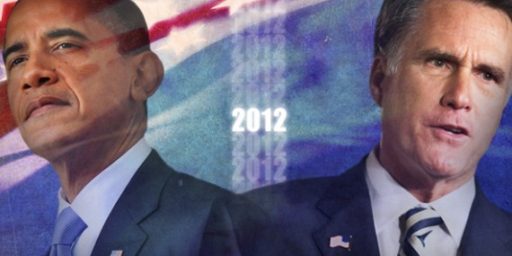Overview: Foreign Policy Attitudes Now Driven by 9/11 and Iraq
Pew Research has published an interesting report which restores, ever so briefly, a bit of the hope that I had for the intelligence and judgment over the American people.
Overview: Foreign Policy Attitudes Now Driven by 9/11 and Iraq
For the first time since the Vietnam era, foreign affairs and national security issues are looming larger than economic concerns in a presidential election. The Sept. 11 attacks and the two wars that followed not only have raised the stakes for voters as they consider their choice for president, but also have created deep divisions and conflicting sentiments over U.S. foreign policy in a troubled time.
Granted, I don’t know how it could be otherwise in the current climate. Still, statements by some key Democratic leaders have seemed to operate under the premise that the voters were still primarily fixated on 9/10 issues.
This is not to say that the Bush team should be signing up for extended leases on their apartments in Washington:
Dissatisfaction with Iraq is shaping opinions about foreign policy as much, if not more than, Americans’ continuing concerns over terrorism. Both attitudes now inform the public’s point of view of the U.S. role in the world. Tellingly, the poll finds about as many respondents favoring a decisive foreign policy (62%) as supporting a cautious approach (66%). And reflecting an ever-widening partisan gap on foreign policy issues, Republicans assign higher priority to decisiveness than to caution, while Democrats do just the opposite.
Americans are acutely aware of — and worried about — the loss of international respect for the United States given disillusionment over Iraq. Two-thirds say the U.S. is less respected by other countries than in the past, and this opinion is particularly prevalent among opponents of the Iraq war. Nearly nine-in-ten (87%) of those who think the war was the wrong decision say the U.S. is less respected internationally, compared with 53% who say the war was the right decision. And by roughly two-to-one, this loss of respect is viewed as a major � not minor � problem for the U.S.
Yet it also is clear that the constant threat of terrorism continues to influence public attitudes toward the use of force in the post-Sept. 11 era. Fully 88% of Americans rate “taking measures to protect the U.S. from terrorist attacks” as a top foreign policy priority. And while the public has deep reservations about the war in Iraq, there is sustained support for the doctrine of preemption. A 60% majority believes that the use of military force can at least be sometimes justified against countries that may seriously threaten the U.S., but have not attacked. This is only a slight decline from the 67% that expressed that view in May 2003, when most Americans judged the war in Iraq a success.
That the public has doubts about the success of the Iraq War is hardly surprising. We live in a broadband Internet, TiVo world. We’re used to instant gratification. That the public is maintaining some perspective on things, though, is incredibly encouraging.
The numbers on the different perspectives of people who identify with one or the other political party is less encouraging:
Republicans and Democrats now hold sharply divergent views on a range of foreign policy attitudes, including the use of torture, the proper balance between fighting terrorism and protecting civil liberties, and even the root causes of the 9/11 attacks. Since late September 2001, a growing number of Democrats (51%) and independents (45%) believe that U.S. wrongdoing in dealings with other countries might have motivated the 9/11 attacks. Republicans reject that view even more decisively than three years ago (76% now, 65% in late September 2001).
Nowhere is the partisan divide more evident than in views of America’s global standing. Fully 80% of Democrats and 74% of independents say the U.S. is less respected by other countries than in the past. Only about half of Republicans (47%) believe the U.S. has lost respect. At the same time, an increasing number of Republicans and independents � but not Democrats � believe the United States is more powerful than it was a decade ago. Democratic perceptions of U.S. power have not changed at all from a survey conducted just prior to the 9/11 attacks: 32% of Democrats saw the U.S. growing in power then, and the same number do so today.
Partisan gaps also are seen in differing visions of the nation’s long-term foreign policy goals. Democrats rate protecting the jobs of American workers and combating terrorism as about equal in importance, and at the top of their scale of foreign policy priorities (89% cite jobs, 86% terrorism). For Republicans, by comparison, combating terrorism is by far the most important policy objective. Beyond that, many more Republicans than Democrats view preventing the spread of weapons of mass destruction as a top priority, while Democrats attach greater urgency to strengthening the U.N., dealing with world hunger and reducing the spread of AIDS and other infectious diseases.
I’m not surprised that Democrats and Republicans view the world differently–that’s why people divide into parties–but the trends are somewhat odd. I don’t know if this is a function of the campaign season, the Michael Moore-ization of the Democrats, or what.




